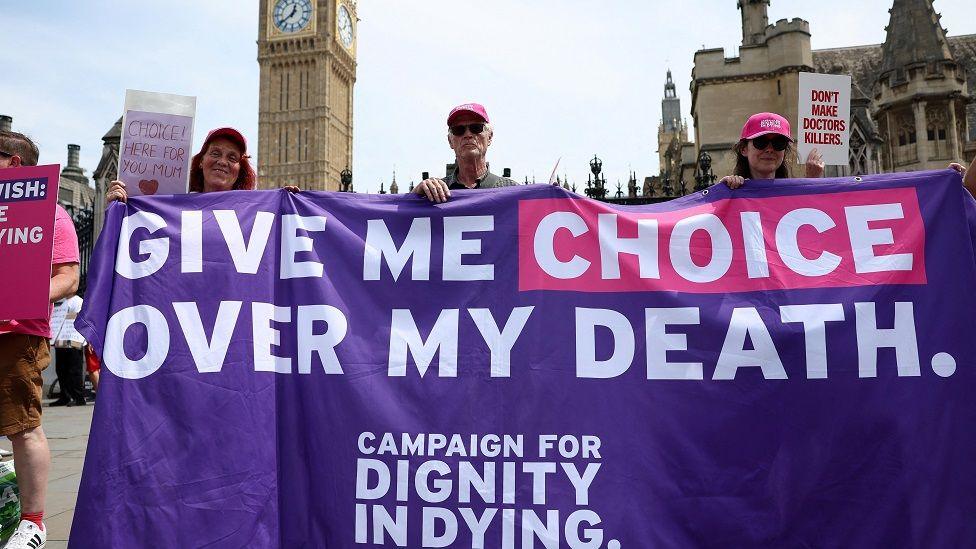Widow cleared in dying case urges law change
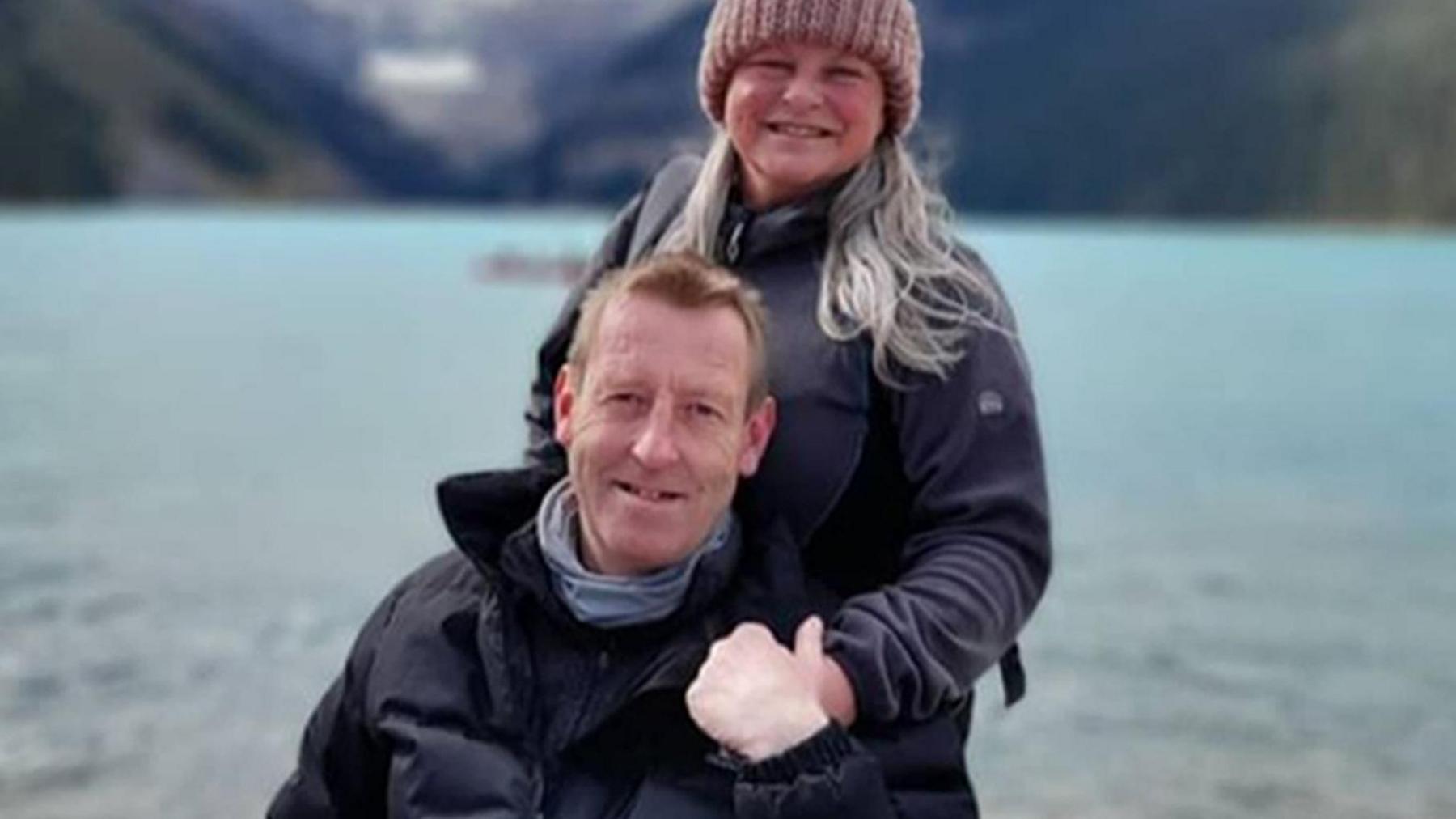
Louise Shackleton travelled with her husband Antony to Dignitas
- Published
A woman who was under police investigation for accompanying her husband to Dignitas has urged lawmakers to recognise assisted dying cannot be just for "the elite".
Louise Shackleton, from North Yorkshire, travelled to the clinic in Switzerland last December with her husband Antony, who had motor neurone disease.
Mrs Shackleton spent 10 months under investigation for assisting a suicide before police announced that the Crown Prosecution Service had decided it was not in the public interest to prosecute her.
The mother-of-three made her plea to House of Lords peers as they prepared to carry out further scrutiny of a bill which would give some people a right to die in England and Wales.
Mrs Shackleton paid tribute to her "amazing" husband and recalled how he had asked her to "tell my story" after his death.
She said the 59-year-old had been "so pleased" that the Terminally Ill Adults (End of Life) Bill passed its first vote in the House of Commons last November, less than a week before his death at Dignitas.
She said while they were in a position to be able to afford the costly and difficult trip abroad, the right to die should not be something available only to the privileged few.
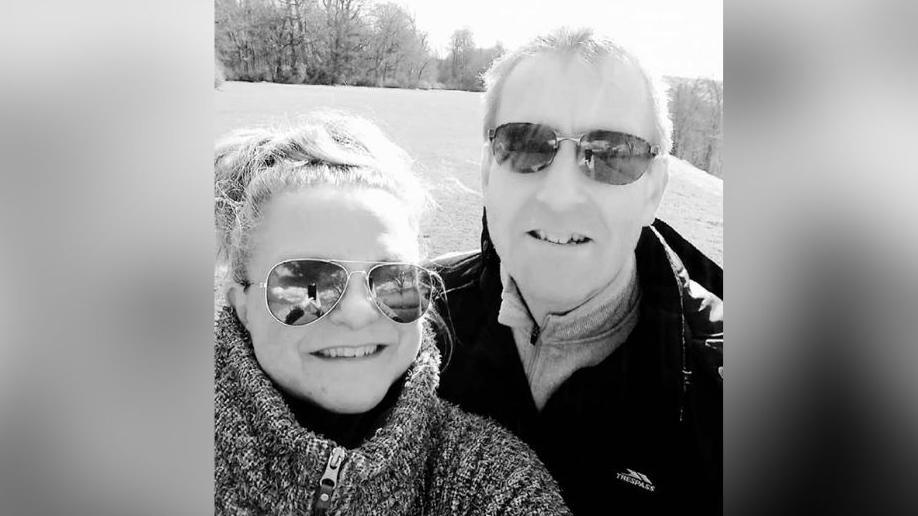
Mrs Shackleton said the current law was "draconian"
A special scrutiny committee will take further evidence on the bill in Parliament later.
Asked for her message to peers opposed to the legislation, Mrs Shackleton said: "Assisted dying already exists in England - the wealthy can afford to go to Switzerland and Belgium.
"The wealthy have choice. We need to be mindful that society has spoken via the Commons, and this choice of whether to end suffering needs to be afforded to all the people and not just to the elite."
The legislation proposes allowing terminally ill adults in England and Wales, who have fewer than six months to live, to apply for an assisted death, subject to approval by two doctors and a panel made up of a social worker, senior legal figure and psychiatrist.
Describing the current law as "draconian", Mrs Shackleton said: "It's not about whether someone should have the right to die, but whether the state or anyone else has the right to compel you to live a life that's full of suffering, pain and agony."
The bill, introduced by Labour MP Kim Leadbeater, passed second reading stage in the House of Lords last month, the furthest any such legislation has progressed through Parliament at Westminster.
However, opponents have raised concerns that terminally ill people, particularly the elderly, disabled or vulnerable, could be pressured into ending their own lives.
They also argued the focus should be on improving end-of-life care rather than introducing assisted dying.
The bill will become law in England and Wales only if both the House of Commons and House of Lords agree on the final wording.
Assisting suicide is currently against the law in England and Wales, with a maximum jail sentence of 14 years.
Of Mrs Shackleton's case, North Yorkshire Police said the investigation had "clearly been a complex and sensitive" one and it was "decided not to be in the public interest to prosecute".
A Crown Prosecution Service spokesperson said: "Upon careful review by specialist prosecutors, it was determined our legal test for prosecution was not met and we advised no further action be taken."
Get in touch
Tell us which stories we should cover in Yorkshire
Listen to highlights from North Yorkshire on BBC Sounds, catch up with the latest episode of Look North.
Related topics
- Published19 September
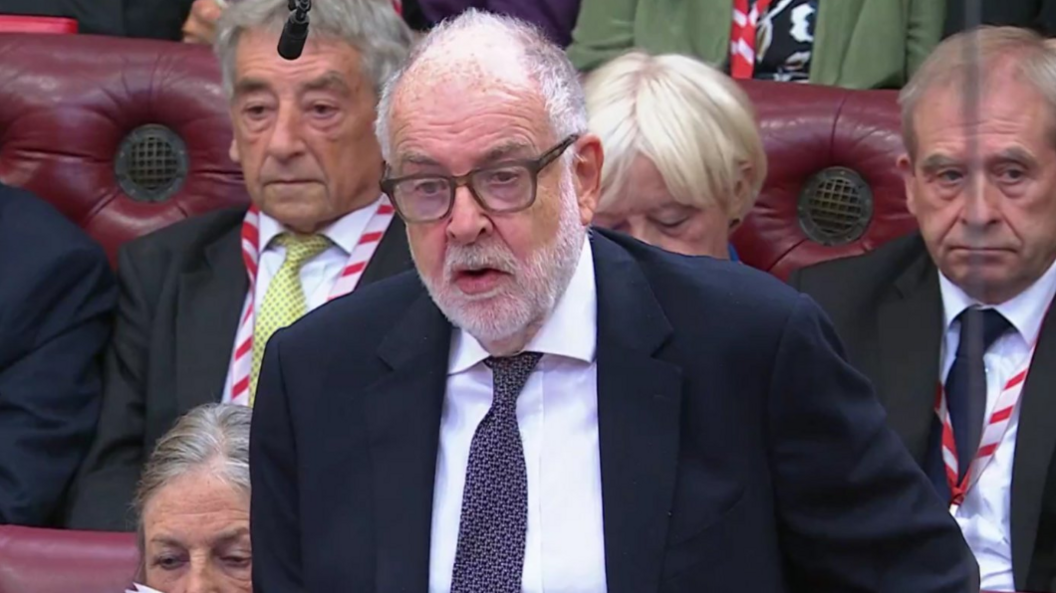
- Published21 June
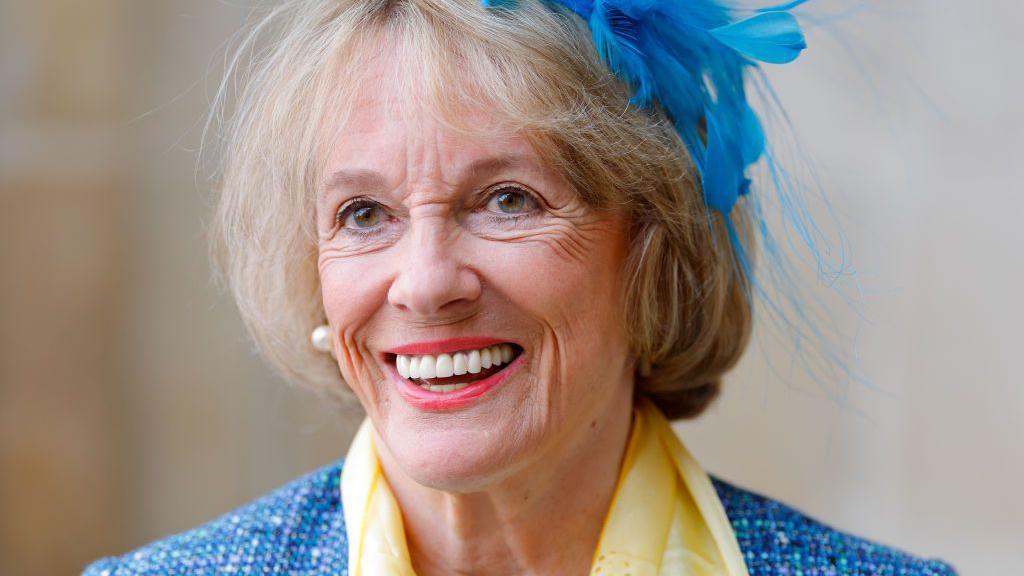
- Published21 June
